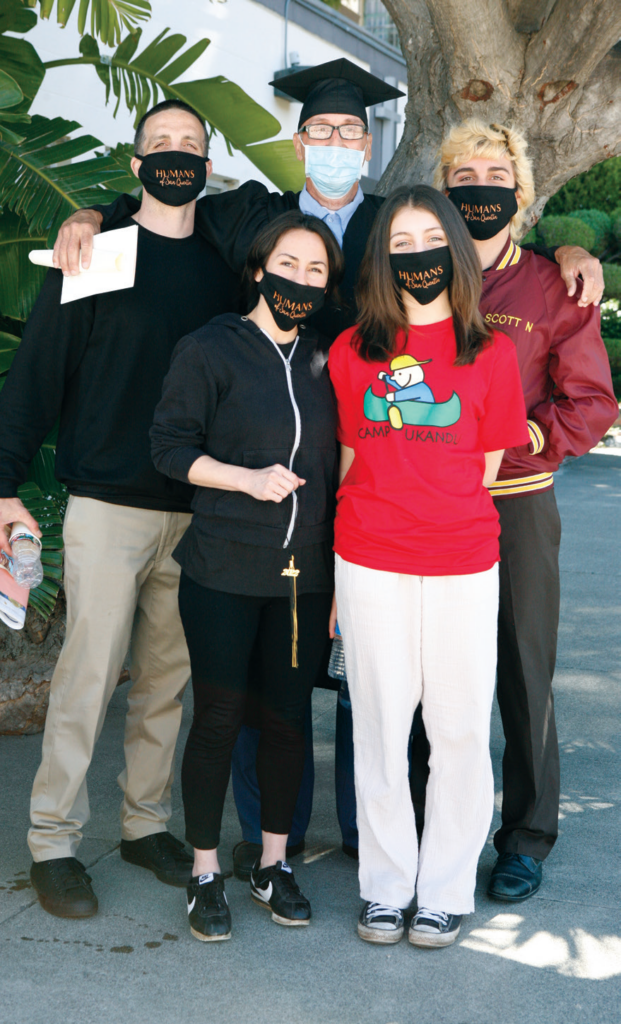
After receiving his results for a rather difficult exam he had taken a month earlier, San Quentin Rehabilitation Center resident Michael Moore walked to the Lower Yard beaming with confidence. He held up a letter from the California Mental Health Services Authority that prominently showed the word “PASS” in capital letters.
Moore, 64, had taken the “Medi-Cal Peer Support Specialist Certification Examination,” a state exam that “measures knowledge required for competent performance as a Peer Support Specialist Professional,” the letter said. His passing score qualified him as a Peer Support Specialist at San Quentin and — better yet, he said, — on the outside.
“My past as an addict gave me a criminal record that would prevent me from getting most good jobs on the outside, but in this program, my past actually qualified me for this job,” said Moore, adding that in this program, “lived experience matters most.”
Moore said the program, designed to help with recovery from addiction, fit with his ideals of helping with others. “Recovery means when individuals improve their health and wellness, live a self-directed life, and strive to function at their full potential.” The exam included sections on administrative responsibilities, behavioral foundations, interpersonal skills, recovery support, advocacy, community inclusion, resource linkage, and crisis management. Moore’s score sheet said he had passed them all.
The first group tested July 2; Moore tested in the second group the next day. The results took almost a month to arrive. Of the 27 residents who tested, 26 passed, and they received offers to join San Quentin’s PSSP team.
“I felt privileged to take a state examination in prison, especially a state examination that would qualify me for a job when I go home,” said Moore. “Best of all, I will be helping people.” By prison standards, the job paid him well so far, Moore said. PSSP workers receive hourly wages of 45 cents at training, 75 cents after training, and then 95 cents after working for six months. Having passed the exam would soon raise his hourly pay to $1.45. Post-release jobs in the field, available for holders of the state certification, would pay annual salaries from $45,000 at entry level. Raises would eventually take them up to $85,000.
PSSP runs as a pilot program at every facility in the state and has funding for two years. Many San Quentin residents have called the program “the best program the California Department of Corrections and Rehabilitation offers.”
Moore said he expected that the job would also help him with the Board of Parole Hearings. “The board wants change and I am doing the five stages of change and participating in this program counts as one of them.”
Moore said he had worked hard to prepare. “We started seven months ago and we needed to do 60 hours in 17 core competencies. They tested us on the eight most important ones.”
“Peer Support Services is empowering and strengthens my recovery,” said Moore. “We help and give back and we empower ourselves and others in our altruistic ventures.”
Asked about what drew him to apply to the program, Moore answered, “By sharing our lived experience, we can help guys who struggle.”